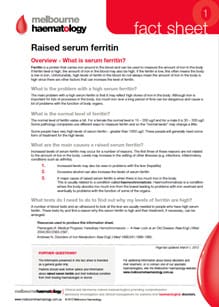Overview
What is Anticoagulation?
There are a number of medical conditions where blood is “too thick” (or viscous). Sometimes these conditions are associated with blood clots forming in the blood vessels. It is sometimes necessary to give patients anticoagulation (blood thinning) therapy to prevent or treat clots that have formed in the blood vessels. In pregnancy in particular, some women may require anticoagulation therapy who would otherwise be predisposed to a greater risk of blood clots forming.
How does anticoagulation therapy (blood-thinning) work?
Blood clots form in the circulation due to a combination of proteins and cells. Blood thinning generally stops some of these blood clotting proteins from working properly. Blood thinning is usually achieved by either injections with a medication called heparin (Clexane or Fragmin) or by a tablet (Warfarin). XXXXXXX (newer form of anticoagulation medication)*****
How do you measure antibodies for APS?
Antibodies in APS are measured using a blood test.
There are three blood tests we use:
It is important to remember that not everybody who has these antibodies in the blood will develop blood clots or have problems with pregnancy; some people have these antibodies but never develop any problems with blood clots. Sometimes these antibodies occur after an infection and then disappear.
How did I get APS?
We are not sure why APS develops. It is more common in females than males.
What are the main problems with having APS?
The main problems with having APS is being at risk of having a blood clot and getting (or staying) pregnant.
- Blood clots can occur anywhere in the body; often the veins in the leg, sometimes in the arteries of the body and sometimes APS can even cause strokes.
- APS is associated with recurrent miscarriages and other complications of pregnancy.
Treatment & Management
What is the treatment for APS?
If you have APS it is likely you will need blood thinning medication (anticoagulation or anti-platelet therapy) to reduce the risk of having a blood clot or to manage recurrent miscarriages. Blood thinning works by stopping the blood clotting system working properly and prevents blood clots in patients with APS. A number of studies have suggested anti-platelet therapy (aspirin) and anticoagulation can help in patients with APS and problems with pregnancy.
How long will I have to be on blood thinning for?
Unfortunately, you are at a high risk of having another blood clot if you have already had one blood clot and have blood tests showing you have APS. Blood thinning will reduce this risk significantly – current recommendations suggest that you should stay on blood thinning as long as the risk of blood thinning (bleeding) do not outweigh the benefits. You should talk about continuing blood thinning with your doctor.
Resources used to produce this information sheet.
- Rand, H The Antiphospholipid Syndrome. Haematology 2007 pp 136 – 142
- Garda, DA Khamashata, MA Crowther MA. How we diagnose and treat thrombotic manifestations of the Antiphospholipid syndrome; a case based review. Blood 2007 pp 3122 – 3127
Further Questions?
The information presented in this fact sheet is intended as a general guide only.
Patients should seek further advice and information about Anticoagulation (Blood thinning) in Pregnancy and their individual condition from their treating haematologist or doctor.



